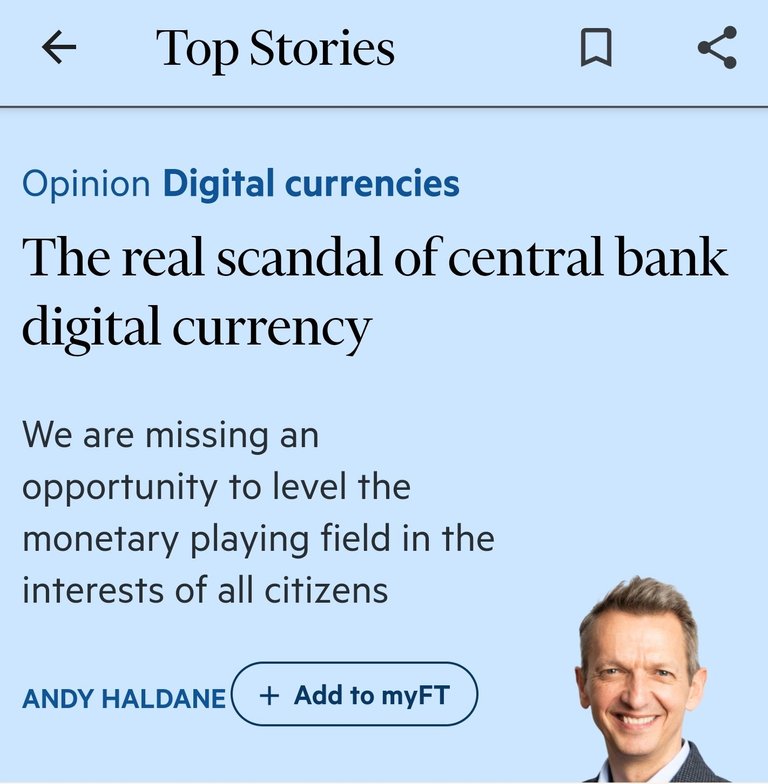Seigniorage (and the impact of holding physical cash)

Heck of an article in the FT from Andy Haldane, ex UK Bank of England, on CBDCs and the nature of money.
I must confess that I actually learnt a new word: "seigniorage", from it!
Seigniorage, apparently, is the profit that a government makes between the face value of a currency and the actual cost of creating that actual currency coin or note.
Andy Haldane goes on to make this lofty statement, that I had to pause and consider carefully:
Cash is not just a payments medium; it is also a means of financing governments and central banks. Physical cash is an interest-free loan to government, a direct tax on citizens levied in proportion to their cash holdings at a tax rate given by the interest rate. Most people are blissfully unaware they are being taxed in this way. The name of this tax — seigniorage — adds to its mystery and oddity.
Wow!
Let's try to break this down 👇
"Cash is not just a payments medium; it is also a means of financing governments and central banks."
He means that cash also plays a crucial role in helping governments and central banks function by providing profits they make from producing and issuing cash to fund their operations ie seigniorage!
"Physical cash is an interest-free loan to government."
I've never thought of physical cash in this way before. He's basically saying that when you hold physical cash, you're indirectly lending that money to the government without earning any interest on it. Your loss of interest is effectively a form of taxation. As the government uses this "loan" to fund its operations (interest free, at your expense), and you get the cash as a token representing the value you've loaned.
"A direct tax on citizens levied in proportion to their cash holdings at a tax rate given by the interest rate."
So holding cash is like paying a stealth tax to the government. The "tax rate" is the interest that could have been earned if the money was saved or invested instead of held as cash. This means that the more cash you hold, the more "tax" you're effectively paying, because you're missing out on ever larger potential interest earnings.
"Most people are blissfully unaware they are being taxed in this way."
ie most folk are completely unaware that by holding cash, they're missing out on the potential to earn interest, and that this is effectively like a tax.
"The name of this tax — seigniorage — adds to its mystery and oddity."
As noted above, seigniorage is the term for the profit that governments make from issuing money. Who knew..?
Lots to unpack here but interesting angle nonetheless... 🤔
Hi @stevelivingston,
Thank you for participating in the #teamuk curated tag. We have upvoted your quality content.
For more information visit our discord https://discord.gg/8CVx2Am
Except we do not have a monetary system based upon cash anymore and the major currencies are created by the commercial banks under fractional reserve banking.
So the concept has been altered from what you describe.
Not quite, the central argument of the article was that incoming CBDCs are being designed to have no interest payable on them. The author was arguing that holding physical cash has the same shortcomings.
That is true but you are talking about two different components.
The idea is that CBDCs have to be non interest bearing or else the capital will flow from commercial banks into the digital wallets. This would affect the banks ability to lend, causing economic stagnation from everything from business loans to mortgages.
Seigniorage is something different and not as applicable since the monetary system is much bigger than just the currency that people typically associate as money.
And most of it is in the private (read banking) sector.
Yes, I would like to say here that a person should never store his money inside the money, a person should buy gold and silver and keep it buy crypto.